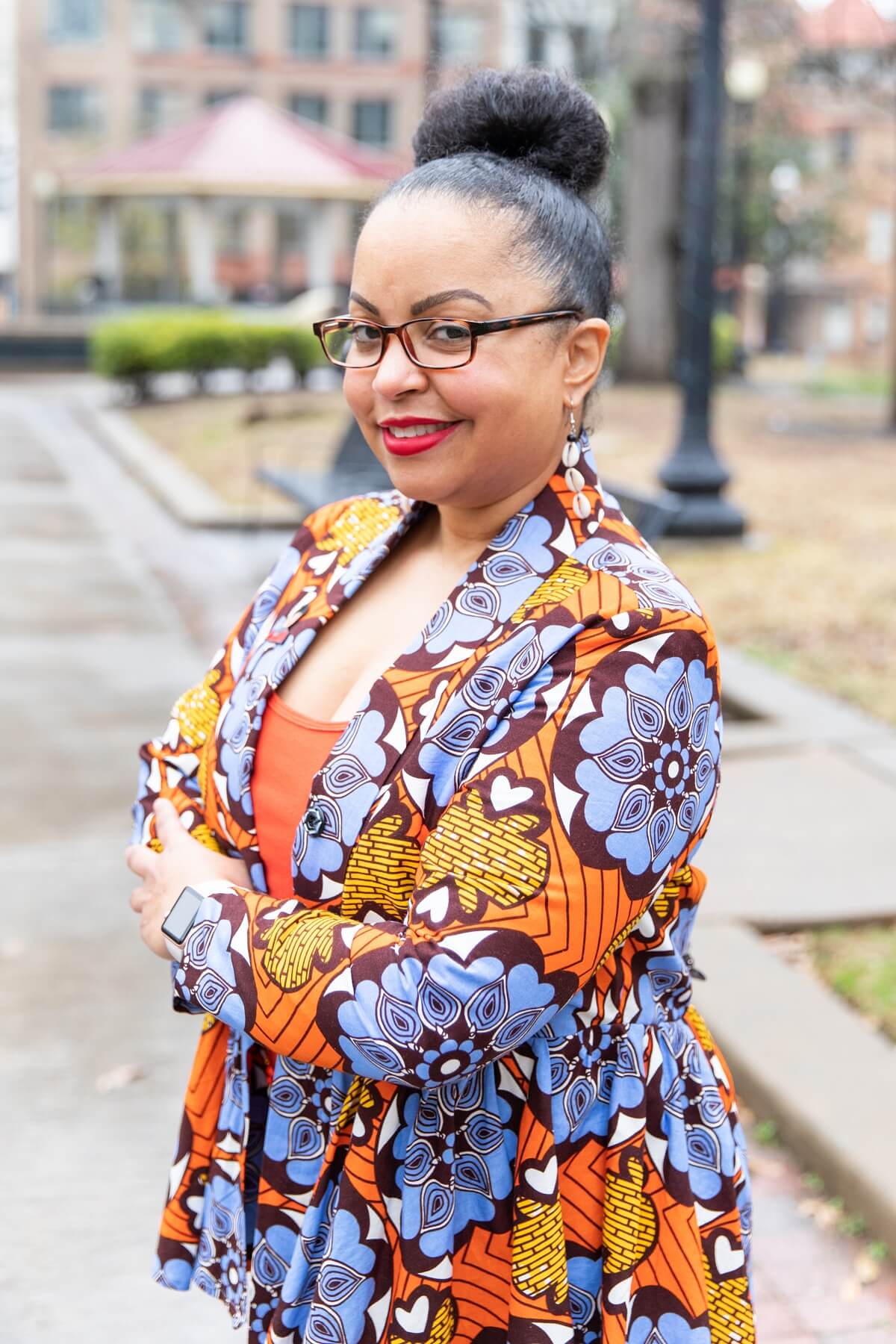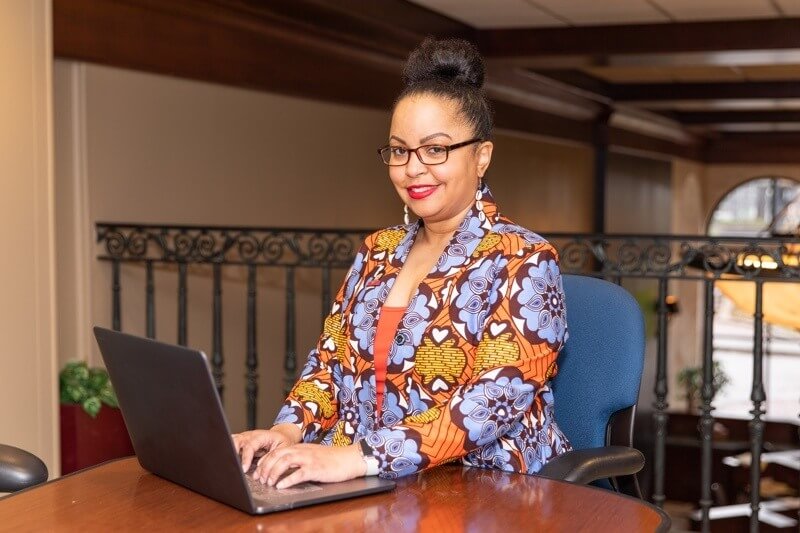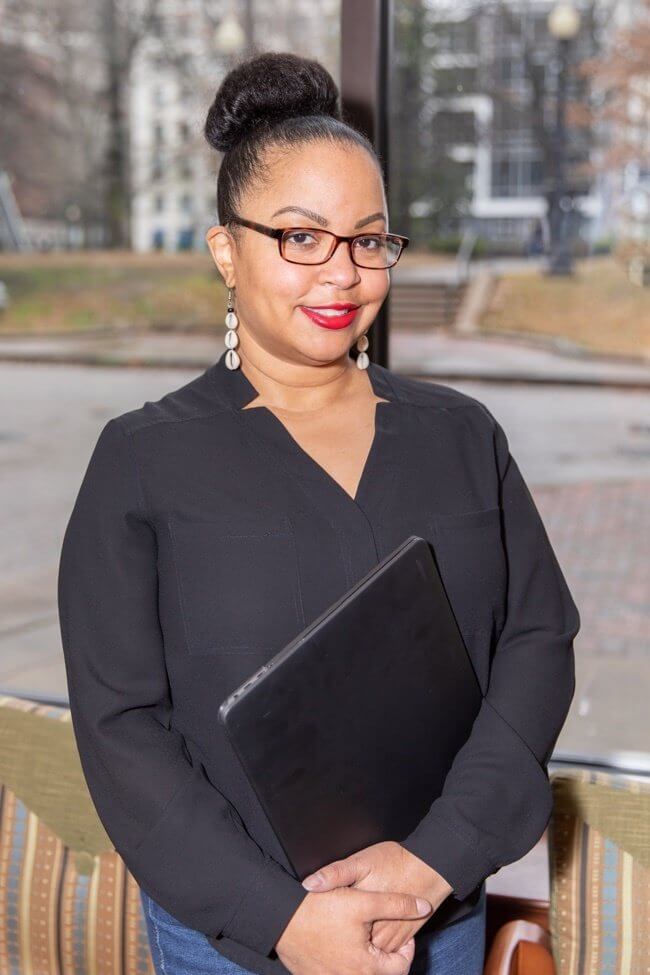Published February 2019
After spending time in newsrooms in Indianapolis, Nashville and Charlotte, Wendi C. Thomas returned to her hometown of Memphis to lend her perspective as an award-winning columnist while also guiding the reporting of breaking news, investigative journalism and criminal justice. Managing the coverage of the 40th anniversary of Dr. Martin Luther King, Jr.’s, assassination inspired Wendi to consider not just how the 50th anniversary would be reported, but how progress (or the lack thereof) since that tragedy could be measured. She launched MLK50: Justice Through Journalism one year in advance of that milestone, and her staff spent 12 months relating the issues on which Dr. King was focused with the state of modern Memphis and asking tough questions along the way. Meet this week’s unflinching FACE of Memphis, Wendi C. Thomas.

Where were you born and what was your upbringing like?
I was born in Ohio, in a college town, into a very privileged family. Not necessarily privileged in terms of wealth, but just a lot of unearned advantages that I now am very aware of. My dad was a professor, my mother was a pharmacist, so it was Dr. and Dr. Thomas.
We moved in 1980; my dad came to work at Memphis State. I remember when we moved here, it being super hot, and my mother having concerns that if she let us play outside too long we were going to melt.
What is your earliest memory of connecting with journalism?
I can remember being in the parking lot next to Campus School, listening to NPR on the radio and having my dad turn down the radio and give his own version of what he thought they’d said. And so this idea that there’s one narrative that can’t be challenged, or there’s not another version of an event — I’ve never thought that. I’ve always thought, “Okay, there’s what the official story is, and then there’s other context that should be added or is relevant.”
What were your goals when you began your career, and how have they evolved?
I didn’t have any grand plan to be a journalist at all. I went to college and wanted to be a pharmacy major like my mother. I suck at math; I don’t know what I was thinking. I always loved to read and write, so I switched my major to journalism.
I think a lot of us get into journalism because we feel drawn to that old adage, “Afflict the comfortable and comfort the afflicted.” I’ve always had a sense that there’s some kind of public duty to be served in journalism. I’m very aware that what we’re doing as journalists is writing that draft of history that somebody will read in 50 years to get an accurate sense of what our challenges were, what our successes were. We have an obligation to get it as close to right as possible.
RELATED: Powerhouse Beverly Robertson: Elevating Memphis at Every Turn

How did MLK50 go from idea to reality?
In 2015, I did the Nieman Fellowship at Harvard University, and you have to pitch a project or an idea to justify why you need to be at Harvard, and this was that project.
When I came back to Memphis at the end of that academic year in 2016, I started working to raise the money to launch MLK50. I knew we wanted to launch it by April 4, 2017, so I had that whole year to chronicle that and again to try to tell this moment in history from the point of view of the people whom King would be focused on if he were still alive. So that’s workers, people who are marginalized, immigrants, activists, organizers. King was, at his core, a radical and disruptive, and so everything we do is infused with that spirit and that energy.
What role does reporting play in social progress?
I think we can look throughout history and see where investigative journalism has literally altered the course of history. One of the first examples would be here in Memphis with Ida B. Wells and her anti-lynching journalism — a black woman from the South really speaking truth to power in a way that was dangerous for her and detrimental for her business. You can look at Watergate, you can look at media outlets, particularly in the North, covering the civil rights movement here.
I think you see that power is all fueled by the people, though, so journalists are really just a conduit to helping amplify those stories.
How do your responsibilities as an editor shape the way that you produce news?
A lot of what journalists do is kind of in the dark, and we don’t really explain what we’re doing a lot. Stories just appear. One of the things I want to try to do more as an editor this year is demystify that process and help our audience feel like we’re more accountable to them. It’s just a fundamental shift in upending the power structure that exists in journalism, which itself is another system that needs disruption.

What makes you most proud of Memphis?
I admire the tenacity of activists, organizers, journalists and neighborhood folks who, despite the lack of progress in Memphis over the last 50 years or the slight progress, persevere. To do accountability journalism is an act of hope, and so you have some fundamental belief that what you are reporting can make a change. I’m most proud of the people here who hope. And there are a lot of them. They’re not as easy to see, but they’re here.
What is coming up next for MLK50?
In December, MLK50 and I were chosen to be a part of ProPublica‘s local reporting network for 2019. That’s what I’m spending my next year on. I am focused solely on the kind of investigative journalism we were just talking about — what are the systems that keep poor people poor, in the second-poorest large metro in the nation?
RELATED: 52 Pieces of Advice: FACES of Memphis 2018
Shifting gears, where is your favorite place to relax?
Probably my parents’ house — just lying on their couch, watching “Wheel of Fortune” with them while they sit in their matching leather chairs. It’s a place that feels safe, and where I know people love me.
What is the first place you take visitors to Memphis?
The Civil Rights Museum, probably. We don’t always have time to go inside, but I will take them in front of the balcony. I feel like that’s a spiritual place.
What is your best advice?
“What would you attempt to do if you knew you could not fail?” I’m a big believer in the power of affirmations. They work. They absolutely work. It sounds hokey, and new-agey, but I could see MLK50. I could see it. And then here it is, with the help of a whole lot of people who see the vision after you’re able to articulate it to them. You have to be able to see it first.
What are three things you can’t live without?
Diet Coke, my laptop — it’s like my baby — and friends who keep me accountable.
Thank you, Wendi! And thank you to Laura Armstrong of NLA Projects for these beautiful photos.
**********
Want insider tips from financial experts? Read our new Q&A series, “Money Moxie,” in which Reliant Investment Management’s dynamic team of financial experts cuts through all the dizzying fiscal jargon and delivers practical answers. Approachable financial information has never been easier! Click here to read the second article in the series.





















